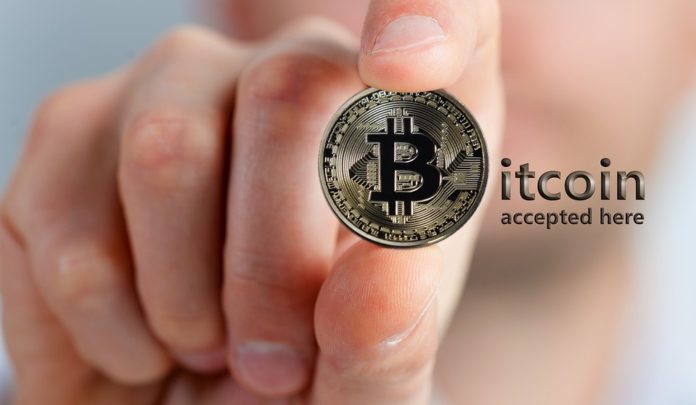By Manish Kumar, cofounder of Grex.in
Here ‘s a little context from my journey – similar to the crypto exchanges but not same…
About two and a half years back when we were building GREX as (what is now known as) a Private Market, we had to face daunting and unforeseen challenges.
It is simply not easy to create anything that is completely digital – its paradigm shifting and needs a lot of components to move in tandem.
Some of the challenges were on Banking side and the others on the Capital Market Ecosystem side.
It was common for us to hear that xyz is a financial institution and this will need to adhere to given rules.
And yes, we were never flouting the rules, but there were grey areas of interpretation.
When one does not have any ‘extra’ incentive (something we as a humble Fintech company could not offer), no one wants to ‘interpret’ things in your favour.
For example, we wanted an escrow account to collect investor money, but that could not be provided to us (despite our intent being investor protection) because the rules had a certain technicality.
No one, not even a single bank came forward to help.
How did we solve it? We had to seek clarification from the regulator itself.
Similar challenges on almost all regulated (and even unregulated) intermediary sides. And we respect that.
We do understand that for prudential financial and capital markets, these things are important.
I will be putting our journey in context with the rules on Crypto Exchanges all the way in this article. Why? Because there is no better way to coompare – I’ll be sharing facts that are our very own.
The curious case of Crypto Exchanges….
The ‘Exchange’ word
I was surprised at the fact that they could use the word ‘exchange’. Well if you are not a company dealing with financial world and you use the word exchange, nobody minds in India.
But the word exchange for a financial services company takes a different connotation.
We faced so much heat only when we used the word ‘exchange-like’.
I wonder how these were never advised, overtly or otherwise to not use this fiercely protected word.
The Bank Account
There are a small finite types of Bank Accounts allowed by RBI.
Specialized accounts, that not normally fall within their boundaries have to be expressly approved by RBI.
Alternately, the Bank may simply open an account based on their conviction that it falls within the scope of a certain account type and its approved set of activities.
My experience says it must be very difficult to open a bank account for this purpose.
“We were denied bank accounts, even as we could explain the law etc that we fell under – it was no one’s initiative.”
We had to reach out to RBI directly because we could not get any clarity/support from Banks.
Today, RBI has taken the same powers to indirectly ban the exchanges.
But the moot question is, how did the bank account for these guys open up in the first place?
Why did the Banks do it? Did their legal and compliance really ensure things were proper? Or were the Banks/departments themselves kept in the dark?
The Regulatory Angle
The Exchanges have been consistently maintaining that they mustn’t or cannot be regulated as they are dealing with tokens which is not a defined entity.
I beg to disagree with these crypto exchanges, atleast in part.
Any token, is either a currency, a commodity or a security, until it is legally clear that under what bucket they will finally be recognized.
And we have laws, regulations and regulator for all the three buckets!
So, the argument that there was nothing that they potentially fall under, may not be correct.
But it surely was assumed to be an advantageous position to take to avoid any regulator behind your back, or atleast they thought so.
Let me contrast this again with our case.
We were dealing with ‘non-marketable’ securities i.e. shares of unlisted companies.
We built the platform and its processes to ensure complete compliance with laws. We worked with all SEBI regulated entities (intentionally so).
We had explained our risk management, legal compliance and best practices with almost every SEBI regulated entity we worked with.
Even then, we ourselves went to the regulator for clarity (or atleast their understanding) as soon as we had established our first couple of transactions.
Even as we are relaunching GREX now, we are actively pursuing with them and government to ‘get ourselves under the regulator’ and otherwise.
We simply never believed, that one can work in this market without the comfort of the regulator.
The Innovation and Impact Quotient
One can argue that for impact generating companies, the regulations must catch up with innovation and not the otherwise.
This is the reason why despite many statements, warnings and even after being in violation of motor vehicles act on multiple accounts, our taxi hailing services were never really stopped from operations.
Our Crypto Exchanges were not innovative ideas from entrepreneurs in India.
They were a copy-cat replica of something that had begun to make waves abroad.
The product of these exchanges was new, but as far as their own innovation quotient, they were simply imported ideas – so in that sense these companies were similar to commodity traders.
And commodity markets are regularly impacted by market forces or government policy (through budgets). In this case it is regulatory action.
On the impact side there is hardly anything to say in their favour as well.
Their existence or otherwise was not affecting (positively) any developmental agenda for the government or the regulator.
In fact, it was only going to increase the headaches of the regulators for no developmental impact at all.
What does one then expect of the regulators?
I’d not give much contrasting point wrt GREX here except that it is appalling to see that 85% of formal demand of capital is not met in India.
Plus, technology must allow access and participative growth through better structured risk participation – this is good for informed investors and good for the growth of the economy.
We thought so. We did do. And we then still went to the regulator so.
The Bottom-line
One may conclude that I’m arguing against the Crypto Exchanges.
No, absolutely not. They are my fellow Fintech companies and I’d love to have their interests covered.
But, my arguments were simply that the approach they took was probably not right.
We took a contra approach to them.
We were simply advised by the regulator to stop fundraising operations, and we completely stopped them (to the extent of almost killing us).
It was until we believed we have developed the shared understanding, knowledge and more importantly the confidence of the regulator.
This is the only way any Fintech entity can think of thriving in the market. I had to answer to lot many of my investors and stakeholders on whether going towards the regulator was the better way. Today, the verdict is crystal clear – that’s the only right way.
The Crypto Exchanges went somewhat the opposite way and thence the outcome was only expected.
(The author is co-founder of Grex, a proposed blockchain based integrated capital market. The article was published here.)
Note from author: This piece is written to with singular purpose of knowledge sharing only to the benefit of existing or aspiring Fintech companies and other Fintech stakeholders.












